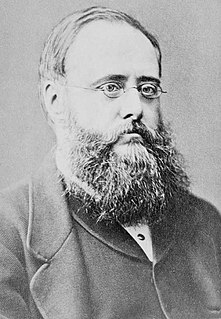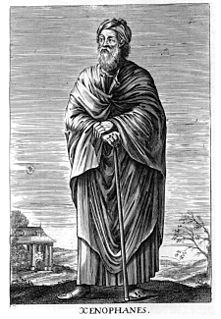A Quote by Samuel Taylor Coleridge
It cannot but be injurious to the human mind never to be called into effort: the habit of receiving pleasure without any exertion of thought, by the mere excitement of curiosity, and sensibility, may be justly ranked among the worst effects of habitual novel-reading.
Related Quotes
An acquaintanceship with the literature of the world may be won by any person who will devote half an hour a day to the careful reading of the best books. The habit of reading good books is one that gives great comfort in all the stages and among all the vicissitudes of life. The man who has learned to love good reading is never alone. His friends are the great ones of human history, and to them he may always go for stimulating and helpful communion. -GQ 71
To cherish and stimulate the activity of the human mind, by multiplying the objects of enterprise, is not among the least considerable of the expedients, by which the wealth of a nation may be promoted. Even things in themselves not positively advantageous, sometimes become so, by their tendency to provoke exertion. Every new scene, which is opened to the busy nature of man to rouse and exert itself, is the addition of a new energy to the general stock of effort.
There are three sorts of pleasures which are advantageous, and three which are injurious. Finding pleasure in the discriminating study of ceremonies and music, finding pleasure in discussing the good points in the conduct of others, and finding pleasure in having many wise friends, these are advantageous. But finding pleasure in profligate enjoyments, finding pleasure in idle gadding about, and finding pleasure in feasting, these are injurious.
These various habits of thought, or habitual expressions of life, are all phases of the single life sequence of the individual; therefore a habit formed in response to a given stimulus will necessarily affect the character of the response made to other stimuli. A modification of human nature at any one point is a modification of human nature as a whole.
Human experience, which is constantly contradicting theory, is the great test of truth. A system, built upon the discoveries of a great many minds, is always of more strength, than what is produced by the mere workings of any one mind, which, of itself, can do very little. There is not so poor a book in the world that would not be a prodigious effort were it wrought out entirely by a single mind, without the aid of prior investigators.
In reading a novel, any novel, we have to know perfectly well that the whole thing is nonsense, and then, while reading, believe every word of it. Finally, when we're done with it, we may find - if it's a good novel - that we're a bit different from what we were before we read it, that we have changed a little... But it's very hard to say just what we learned, how we were changed.
Geology, perhaps more than any other department of natural philosophy, is a science of contemplation. It requires no experience or complicated apparatus, no minute processes upon the unknown processes of matter. It demands only an enquiring mind and senses alive to the facts almost everywhere presented in nature. And as it may be acquired without much difficulty, so it may be improved without much painful exertion.
Curiosity and irreverence go together. Curiosity cannot exist without the other. Curiosity asks, "Is this true?" "Just because this has always been the way, is the best or right way of life, the best or right religion, political or economic value, morality?" To the questioner, nothing is sacred. He detests dogma, defies any finite definition of morality, rebels against any repression of a free, open search of ideas no matter where they may lead. He is challenging, insulting, agitating, discrediting. He stirs unrest.
The man whose whole life is spent in performing a few simple operations, of which the effects are perhaps always the same, or very nearly the same, has no occasion to exert his understanding or to exercise his invention in finding out expedients for removing difficulties which never occur. He naturally loses, therefore, the habit of such exertion, and generally becomes as stupid and ignorant as it is possible for a human creature to become.







































